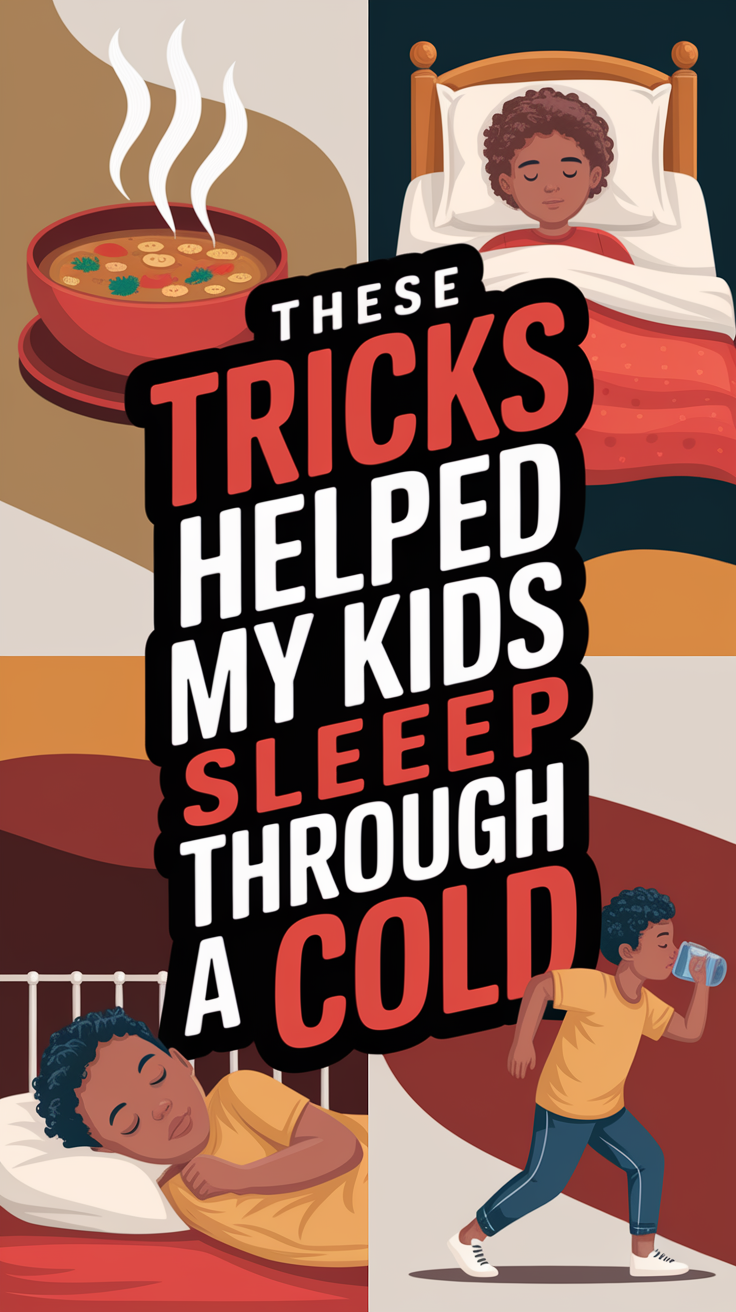Then, dim the lights and read a soothing story together; this lowers cortisol levels and fosters relaxation.
Avoid screens, as they disrupt melatonin production.
Finish with gentle hugs—it’s empathetic and helps your child feel secure, leading to deeper rest despite a cold.
Furthermore, integrating effective natural remedies can provide additional comfort and support the body’s healing process.
Using Humidifiers to Ease Breathing
When your child is battling a cold, a humidifier can ease their breathing by adding essential moisture to the air, which helps loosen congestion and soothe irritated airways.
According to the American Academy of Pediatrics, cool-mist humidifiers reduce nasal inflammation and improve sleep quality, offering you peace of mind during tough nights.
- Feel your heart swell with relief as your little one’s labored breaths soften into calm rhythms.
- Imagine the tender moment when their restless cries fade, replaced by peaceful slumber.
- Cherish the quiet assurance that you’re actively supporting their recovery with proven, gentle care.
For enhanced relief, many parents also incorporate natural remedies like honey to address accompanying coughs.
Comfort Measures for Restful Nights
Creating a soothing environment helps your child rest easier during a cold by addressing discomfort and promoting deeper sleep.
You’ll want to keep the room at a comfortable 65-70 degrees Fahrenheit, as research shows this prevents overheating and restlessness.
Opt for soft, breathable pajamas and bedding to minimize skin irritation—think cotton fabrics that wick away moisture.
Introduce a white noise machine or gentle lullabies, backed by studies linking these to reduced wake-ups.
You’re not just easing their night; you’re showing empathy, helping them heal through better rest.
Stay consistent for quicker recovery.
Additionally, incorporating a simple home remedy like honey and lemon tea can further calm their irritated throat and support restful sleep.
Dietary Adjustments to Support Recovery
Balanced diets play a key role in boosting your child’s recovery from a cold.
By incorporating nutrient-dense foods, you’ll strengthen their immune system and alleviate symptoms, helping them rest easier, as evidence from studies shows vitamins like C and zinc shorten illness duration.
- Fuel with vibrant fruits: Picture the relief as you offer strawberries bursting with vitamin C, knowing research proves it eases congestion and speeds healing, bringing back your child’s playful energy.
- Comfort through warm broths: Feel your heart warm watching homemade soups hydrate and deliver zinc, studies confirming they soothe sore throats and foster quicker recovery, wrapping your little one in care.
- Nourish with probiotic foods: Sense the hope as yogurt’s good bacteria support gut health per scientific findings, helping restore balance and evoking joy in shared, healing meals.
To further support symptom relief, try incorporating ginger into meals or drinks for its anti-inflammatory properties that can ease discomfort and promote restful sleep.
Tips for Monitoring Your Child’s Progress
As your child benefits from dietary tweaks, you’ll want to track their cold symptoms closely to ensure steady improvement and catch any issues early. Use a simple daily log to note changes, focusing on key signs like congestion or cough, which research shows can indicate recovery progress. This proactive approach reduces parental anxiety and supports better sleep. For additional symptom relief, consider using a Healing Tea with natural ingredients to complement tracking efforts.
| Symptom | What to Track |
|---|---|
| Congestion | Nasal breathing and discharge |
| Cough | Frequency and severity |
| Fever | Temperature readings |
| Sleep Quality | Number of awakenings |
| Energy Levels | Activity and appetite changes |






